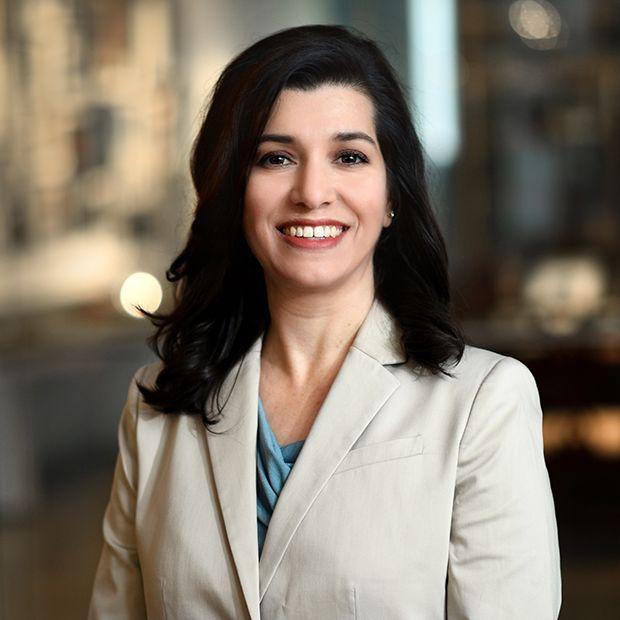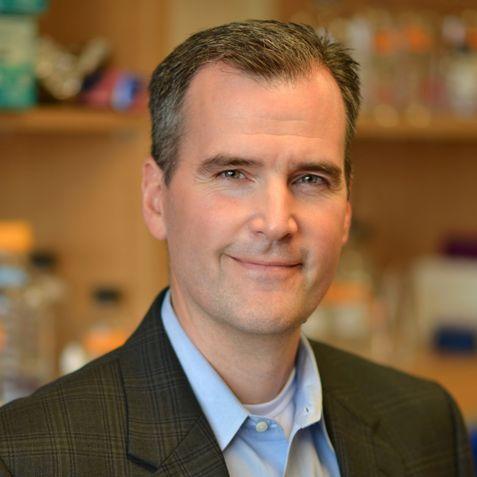Nadia Ismail, M.D., M.P.H., M.Ed.

Professor of Medicine
Dr. Nadia Ismail has dedicated nearly two decades to advancing medical education in Baylor College of Medicine’s School of Medicine. Her visionary leadership, innovative curriculum design and commitment to mentorship have left a lasting impact.
Her journey began as director of the Internal Medicine Clerkship (2007–2015), where she introduced ambulatory care experiences, spearheaded efforts to mitigate grading bias, and consistently earned top evaluations from students. These early contributions laid the foundation for her continued ascent into senior leadership roles, culminating in her position as vice dean of the School of Medicine.
In this capacity, Dr. Ismail has led initiatives that have transformed undergraduate medical education across BCM’s Houston and Temple campuses. She has implemented competency-based medical education (CBME) frameworks and, most notably, chaired the Curriculum Renewal Working Group (CREW) – the institution’s most comprehensive curriculum overhaul in decades. Under her guidance, the foundational curriculum was streamlined into an intensive 12-month structure and redesigned into integrated, organ-system-based blocks grounded in active learning. In the clinical phase, she launched the Academic Clinical Teachers and Assessors (ACTA) program to elevate faculty development and strengthen feedback for clinical learners.
Dr. Ismail also led the creation of the Point-of-Care Ultrasound (POCUS) program, building a multidisciplinary team and securing advanced resources to embed POCUS across the medical education continuum. This nationally recognized program now features physician- and sonographer-led workshops and assessments that enrich clinical training.
Beyond her curricular innovations, Dr. Ismail has made faculty development a cornerstone of her work. Since 2015, she has expanded leadership in student affairs and curriculum at both campuses, successfully recruiting curriculum deans, course directors and the school’s inaugural dean of interprofessional education.
Her influence extends well beyond Baylor. Dr. Ismail is an internationally recognized educator who delivers workshops on narrative assessment, curriculum innovation and equity in medical education. She has been honored with multiple teaching and leadership awards, including the prestigious Fulbright and Jaworski Faculty Excellence Awards. Her scholarship continues to shape national conversations on medical education reform.
Dr. Ismail’s legacy is one of transformative leadership, mentorship and unwavering commitment to excellence in education. Her work has profoundly shaped the careers of students, residents and faculty. It exemplifies the spirit and values celebrated by the Barbara and Corbin J. Robertson Jr. Presidential Award for Excellence in Education.
Matthew N. Rasband, Ph.D.

Professor of Neuroscience
Dr. Matthew Rasband is a professor and the Vivian L. Smith endowed Chair in Neuroscience at Baylor College of Medicine. Dr. Rasband believes it is a privilege and responsibility to effectively train the next generation of scientists. He serves as the director of the Neuroscience Graduate Program and since 2009, oversees an NINDS T32 training grant.
His experience includes mentoring 22 Ph.D. graduate students in his laboratory, 15 postdoctoral researchers, and serving on more than 100 Ph.D. thesis advisory committees – many of his former trainees now run their own laboratories. Dr. Rasband received the 2019 NINDS Landis Award for Outstanding Mentoring. Dr. Rasband lectures in many different courses. He is the founding course director for Brain Cell Biology, which was awarded the Graduate School of Biomedical Sciences Best Course in Neuroscience in 2020 and 2023. In 2021 he was named the Baylor College of Medicine Graduate School of Biomedical Sciences Outstanding Lecturer in Neuroscience, and in 2023 was awarded the Baylor College of Medicine Graduate School of Biomedical Sciences Marc Dresden Excellence in Graduate Education Award. He was awarded the first Department of Neuroscience Outstanding Educator Award in 2011, and again in 2015, 2019 and 2023 (he received this award every year that he has been eligible).
Outside of Baylor College of Medicine, Dr. Rasband serves as a member of the Society for Neuroscience’s training committee and has been involved with the International Society for Neurochemistry’s Advanced Neuroscience School as a member of its committee for more than a decade; in 2019, he organized and chaired the advanced school in Montreal, Canada, with 100 students attending from around the world. Dr. Rasband serves on the advisory boards of many neuroscience graduate programs in the U.S. and is a frequent reviewer of NIH training grants and fellowships. He has been extensively involved in graduate student, postdoctoral and faculty mentoring. He is a trained facilitator for the National Research Mentoring Network. Research questions in the Rasband laboratory focus on the molecular and cellular mechanisms that regulate neuronal excitability and the functional organization of axons in health and disease. To this end, his laboratory uses a broad array of experimental techniques, including genetically-modified mice, proteomics, microscopy (immunofluorescence, super-resolution and electron), electrophysiology, primary cell culture, biochemistry and molecular biology.
View a list of current and past recipients.








